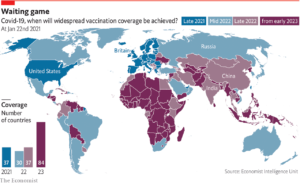Saturday gala aims to counter stigma around mental health challenges and close funding gap
Andrea Huncar · CBC News · Posted: Jun 16, 2023 8:00 AM EDT | Last Updated: June 16, 2023

Lisa Cyuzuzo always intended to undergo therapy but the Africa Centre’s mental health clinic made counselling feasible.
Launched in January 2021, demand has now tripled at the Africa Centre Mental Health Counselling Clinic where clients can access culturally sensitive therapy for free.
“It was just a no-brainer for me, it being free and offering African Black Caribbean therapists,” said Cyuzuzo, 23, a psychology student at the time, and the child of survivors of the Rwandan genocide, who still works with her counsellor two years onward.
“There’s just this understanding that I didn’t really have to explain to someone who might not have that cultural competency or safety lens.”
Yawa Idi, mental health support co-ordinator at the Africa Centre, said traditionally many community members have avoided talking about mental illness because it can be associated with being crazy, demonic, or dysfunctional.
Having to rely on language in their native tongue, which describes conditions in negative terms has reinforced the stigma, Idi said.
But a different story is emerging according to the uptick in demand at the clinic, which offers both online and in-person sessions.
Stigma decreasing
Average monthly appointments have surged from 34 in January 2022 to 110 in January 2023.
Among the clients are youth, adults and seniors from African, Caribbean and Black communities throughout Alberta, but also anyone looking for culturally-sensitive, affordable services including white and Indigenous Albertans.
“In a community where mental health is so stigmatized, stigma is reducing,” said Idi. “People are getting more comfortable with utilizing mental health services.”

The vision for the clinic arose in part from a community-based research project co-led by 10 youth at the Africa Centre, including Idi, and Bukola Oladunni Salami, a University of Alberta professor in the faculty of nursing. They interviewed 129 Black youth in-depth.
Alongside stigma, the 2021 study found a lack of cultural inclusion, geographical challenges and cost were preventing Black youth from accessing mental health supports.
Those findings helped guide the Edmonton-based organization’s team in the creation of barrier-free programming that serves clients ranging from multi-generational immigrants to newcomers. And in a province where access to counselling can take weeks, there is no wait list.
Investing in community
For those whose first language isn’t English, clients can access various licensed therapists from the Alberta Black Therapists Network in multiple languages including English, Swahili, Amharic and Arabic.
Therapists offer sessions on weekdays, evenings and weekends at a significantly reduced rate.
“They are coming back to invest in their communities,” said Emmanuel Onah, director of operations and youth programs at the Africa Centre. “So we’re eternally grateful to them.”
The Africa Centre is launching another physical location in Calgary scheduled for Aug. 1 and looking at future growth possibilities with inquiries increasingly coming in from across the country.

Salami is also the keynote speaker at the Africa Centre’s 15th annual gala this Saturday, which is fundraising for the clinic.
With yearly grant funding from RBC and United Way, the injection of cash will allow the clinic to continue running until the next grant cycle.
This year’s gala will celebrate Black resilience around mental health showcasing traditions that enhance community wellness such as song, dance and the guidance of elders.
With more than 450 expected guests, the final performance will serve as a reminder about the role community members can play in supporting each others’ mental wellness.
The dance ends with a person attempting suicide, brought back by the community.
“We’re going to link hands across the entire hall so that everyone knows that they have a role to play in helping this individual.
“We just want to make that known, that community has that role to play.”
For Cyuzuzo, whose process has come full circle, now working as a healthcare company, the Africa Centre’s mental health clinic is a symbol of that community interconnectedness.
She points to the South African concept of Ubuntu, which means “I am because you are.”
“Because I fill my own cup, I’m able to pour out into others,” Cyuzuzo said.
For more stories about the experiences of Black Canadians — from anti-Black racism to success stories within the Black community — check out Being Black in Canada, a CBC project Black Canadians can be proud of. You can read more stories here.





